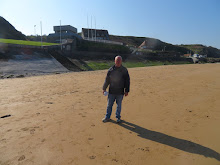. . . and these are the dozen that I thought were the most impressive, in order of best to less significant.
1. The Guns at Last Light: The War in Western Europe 1944-45 V3 of the Liberation Trilogy by Rick Atkinson (2013). The conclusion of Pulitzer Prize winning Atkinson's opus on the Allied ETO war effort from the American POV. The trilogy reaches its conclusion with complete victory over Nazi Germany in this stunning denouement that details the end of WW2 in Europe, from the D-Day landings to the fall of Berlin (to the Russians) with the Anglo-American armies poised on the Elbe River a short distance away and Germany prostate and utterly beaten.
2. To Kill a Mockingbird by Harper Lee (1960). This book won the Pulitzer Prize for fiction and is a revered American novel, with small-town lawyer Atticus Finch fighting for justice in the Jim Crow south even as his two small children, Scout and Jem grow up in a racist town. Boo Radley, a reclusive figure who strikes fear in their hearts, saves them in the end in a morality tale that shows that often nothing is as it appears to be.
3. An Army at Dawn: The War in North Africa 1942-43 V1 of the Liberation Trilogy by Rick Atkinson (2002). This Atkinson book about Operation Torch, the American landings in Vichy French North Africa, won the Pulitzer Prize for history. Atkinson is a florid writer--it's almost like you're reading literature, no history--and using all sorts of metaphors he describes the North African campaign where: a) the Americans got into the fight against the fearsome German army for the first time; and b) learned how to take on the Wehrmacht; c) learned valuable amphibious assault lessons against feeble, half-hearted resistance that the Vichy troops threw up; which d) stood them in good stead for invading Sicily, then Italy and then the Big Show, Normandy.
4. American Predator: The Hunt For The Most Meticulous Serial Killer of the 21st Century by Maureen Callahan (2019). This true-crime book is a page-turner (I stayed up all night reading it). Utterly fascinating and chilling.
5. Dead Wake: The Last Crossing of the Lusitania by Erik Larson (2015). The sinking of this passenger liner (reputedly carrying munitions to the Allies) in 2015 almost brought America into the Great War a couple of years before Woodrow Wilson, a president too proud to fight, finally successfully petitioned Congress for a declaration of war against Germany in 2017. The narrative recreating the destruction of the great ship is memorable. Interestingly, infected American troops going Over There in 1918 brought on the deadly "Spanish Flu"pandemic of 1918-1919 which killed 60 million persons worldwide, triple the number of persons killed by The War To End All Wars. The flu had originated in the cattle farms of rural Iowa, where it was a local phenomena of "pneumonia" which spread to the troop barracks on the East Coast then to the trenches of the frontlines in France and then to the world.
6. Bunker Hill: A City, a Siege, a Revolution by Nathanial Philbrick (2013). A long version of the Bunker Hill battle, fought on Breed's Hill in Charlestown across the bay from Boston, and the people and events leading up to it and resulting from it.
7. The Longest Day by Cornelius Ryan (1959). The old standby reference for the D-Day invasion that liberated Europe from the Nazi scourge.
8. Lincoln's Sanctuary: Abraham Lincoln and the Soldiers Home by Matthew Pinsker (2003). An interesting book about "Lincoln's Summer Cottage," a little known National Historical Place on the northern edge of Washington which Lincoln rode to, usually alone, every evening during the summers because it was cooler there. He was shot at, accosted, and suffered a runaway horse before a guard troop was finally encamped there. The book touches on the emancipation proclamation, claiming it was largely written there.
9. Abraham Lincoln and the Second American Revolution by James McPherson (1993). The redefinition of liberal democracy expostulated at Gettysburg. A new birth of freedom. All those white national January 6th fascistic traitors should effin' read this book.
10. The Day of Battle: The War in Sicily and Italy 1943-44 V2 of the Liberation Trilogy by Rick Atkinson (2007). The Allied effort in the ETO continued with a leap across the Mediterranean to Sicily then Italy. But this was bloody war in a sock for the Allies because Italy has a mountainous spine and the Germans always had the high ground. The Americans on the left and the British on the right hammered away in frontal assaults on well-prepared and heavily fortified mountain strongholds for two years, lending little to the Allied success in beating Nazi Germany. Vally after valley had a mountain range bristling with enemy guns facing it. The idea was to tie down German divisions thereby helping the Soviets on the Eastern Front but the Allies expended more divisions in attacking than the Germans used in defense.
11. Custer's Fall: The Native American Side of the Story by David Humphreys (1957). I'm a sucker for any book on Custer. I didn't find anything new here. Read Black Elk Speaks by John Neihardt (1932) instead.
12. The Life of Johnny Reb by Bell Irvin Riley (1943). This has long been considered a classic Civil War exposition by this Emory University professor using local sources of how the hardy, emaciated Rebel soldier lived and fought but I found it to be long, boring, unilluminating and racist. I gave away my copy of his subsequent book, The Life of Billy Yank.

No comments:
Post a Comment